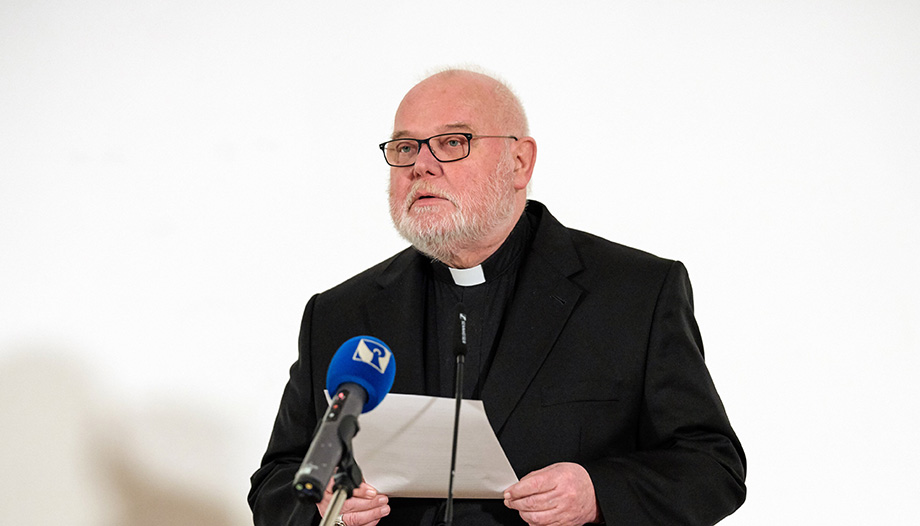The report on sexual abuse of minors and vulnerable adults by clergy and lay people working in the Munich-Freising archdiocese between 1945 and 2019, prepared by the Munich law firm "Westpfahl, Spilker, Wastl", was presented in Munich on Wednesday. The report, which is more than 1,200 pages long, is signed by five lawyers from the law firm.
In total, it includes accusations against 261 people (205 clerics and 56 lay people), of which the investigation "showed indications of guilt" against 235 people (182 clerics and 53 lay people), with a total of 363 relevant cases. The authors of the report consider that, in 65 cases, the accusations are proven; in 146 they are at least plausible; in 11 cases they refuted them. In 141 cases (38 %) "there is insufficient basis to draw a definitive judgment". The report assumes that there were at least 497 victims, 247 males and 182 females (in 68 cases "it was not possible to determine"); the largest age group is 8 to 14 years old (59 % among males; 32 % among females).
But, more than the cases themselves, what was of particular interest to public opinion was the way in which the hierarchy had acted; being a 75-year period, it concerns six archbishops, all of them cardinals: Michael von Faulhaber (1917-1952), Joseph Wendel (1952-1960), Julius Döpfner (1961-1976), Joseph Ratzinger (1977-1982), Friedrich Wetter (1982-2008) and Reinhard Marx (since 2008).
An article published in the weekly "Die Zeit" accused Pope Emeritus Benedict XVI of having had knowledge of the case of a priest who - after having committed abuse in his diocese of origin, Essen - moved to Munich for psychotherapy treatment. The authors of the report attach such importance to this case, because the Pope emeritus was asked to take a position on it, to which Benedict XVI responded with a letter of 82 pages, that it forms part of a special volume of more than 300 pages. Apart from that case, the report speaks of four others (one of which is, however, ruled out) in which "he is blamed for not having reacted adequately or in accordance with the norms to cases of (alleged) abuse that had come to his attention."
At the press conference at which the law firm presented the report, virtually all the questions revolved around the question of what the then Cardinal Ratzinger knew about the background of this priest (referred to as "X"; this is case 41 of the report). The matter is complex because it involves both the then Vicar General of the diocese, Gerhard Gruber, and the Judicial Vicar at the time, Lorenz Wolf. In 2010 - when the sexual abuses came to light and the same law firm undertook a first investigation - Gerhard Gruber took full responsibility; now he says that "he was forced into it", but without giving further details as to who would have forced him. And the credibility of Lorenz Wolf, on which "Die Zeit" based its accusations, is called into question by the same law firm.
The authors of the report believe they have found proof that Benedict XVI knew about the situation of priest "X" in the minutes of a working session held in the curia of the diocese on January 15, 1980. In his position, the Pope emeritus claims not to remember having been at that meeting; from the fact that the minutes do not expressly state that he was not there, the lawyer infers that this means that he did attend. From this, lawyer Wastl infers that Benedict XVI was informed about the past of "X".
Now, when a journalist asks him if he can be sure that Benedict XVI had that knowledge, the lawyer measures his words: if that is proof, the courts will have to say so; he considers it "highly probable" that he knew. The next journalist asks if he is sure that in that session the matter of the priest in question was discussed: "Well, we start from the assumption," the lawyer answers, "that it is highly probable that this matter was discussed; now, you know the very creative way in which minutes are taken in the Catholic Church". That is to say, he has no proof that the matter was dealt with, and he adds: "I cannot imagine that it was said that a priest from another diocese was coming and nobody asked why. And if it was known that he was under psychiatric treatment, that no one would ask why. Of course, the fact that I can't imagine it doesn't mean that I know the literal tenor of the meeting". Even if that were so: that in 1980 a "psychotherapy" did not immediately arouse suspicion of sexual abuse is something that does not occur to the lawyer either.
In a first, brief statement, Cardinal Reinhard Marx - who is accused of having acted improperly in two cases and also of not having given the necessary importance to the matter, as he only began to deal with it in 2018, ten years after arriving at the See of Munich - has indicated that he is "shocked and ashamed" and that his first thoughts are for those affected by sexual abuse who have experienced suffering by clerics or other representatives of the Church.
Due to the length of the report (almost 1,700 pages in total), Cardinal Marx announced that it would be studied in the bishopric: "I hope to be able to present next Thursday some initial perspectives and outline the way forward". To this end, he called a press conference for January 27.








